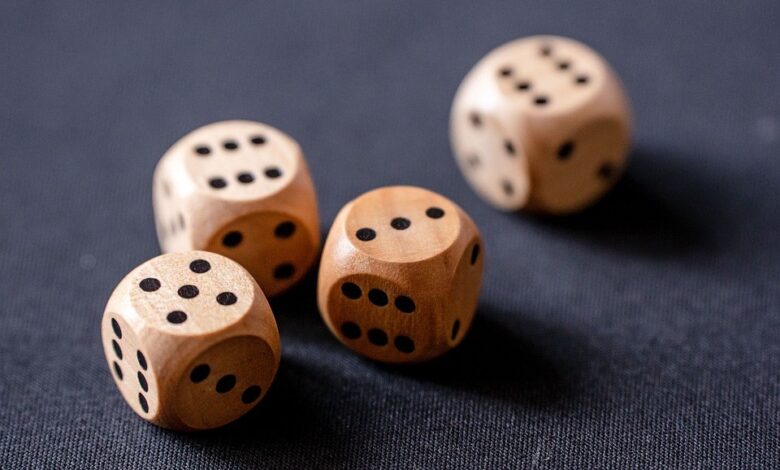he Science of Luck: Slot Games and the Psychology of Random Rewards

Thanks to the thrill of random rewards, slot games are a favourite pastime for many. These systems rely on unpredictability, where players never know when or how much they might win. This uncertainty creates excitement, keeping players engaged and eager to keep spinning.
The impact of these random rewards on player behaviour is profound. The unpredictability draws players in, influencing their habits and decisions. What might seem like a simple game of chance is a carefully designed experience based on human psychology.
Examining the psychology behind slot games is essential to understanding why they are so compelling. Exploring how they affect decision-making and behaviour reveals that the science of luck is more than flashing lights and spinning reels.
The Allure of Unpredictability
Random reward systems are the foundation of slot games, delivering prizes at unpredictable intervals. Psychologists refer to this as a variable reinforcement schedule, a concept developed by B.F. Skinner as part of his theory of operant conditioning.
Skinner discovered that behaviours are most effectively maintained when rewards are given at random intervals rather than following a fixed pattern. This unpredictability keeps players intrigued and motivates them to keep playing.
Slot games in online casinos take this concept to the next level, offering a globally accessible platform where players can enjoy the thrill of random rewards anytime. The convenience of these digital platforms, combined with the excitement of the unknown, has only increased their popularity.
Uncertainty taps into basic human instincts. The possibility of a big win triggers anticipation, even if the odds are slim. This emotional response is why players feel driven to keep spinning, convinced their next attempt could be the lucky one.
Dopamine and the Reward System
Did you know slot games also interact with the brain’s reward system, mainly through dopamine? Dopamine is a neurotransmitter that is released when something pleasurable happens, such as winning a prize. Slot games are designed to amplify this response, reinforcing the desire to keep playing.
Even small wins can trigger a dopamine surge, creating momentary joy. Over time, these experiences form a cycle of anticipation and reward that keeps players returning. This pattern can turn into a habit, as the brain associates slot games with feelings of satisfaction.
Interestingly, even near misses can spark a dopamine release. For example, landing two matching symbols out of three can feel like a win, even though no prize is awarded. These near misses keep players invested, ensuring the game remains engaging.
The Illusion of Control
Many players believe their actions influence the outcome of slot games, a phenomenon known as the illusion of control. Even though slot games rely entirely on random algorithms, players often develop strategies or rituals they think will improve their chances of winning.
For instance, a player might press the spin button at a specific time or stick to a machine they consider “lucky.” These behaviours create a false sense of involvement, encouraging players to stay engaged longer.
Slot games also enhance this illusion with clever design features. Flashing lights, celebratory sounds, and other cues make wins feel more significant. This carefully crafted experience reinforces the idea that players can influence the outcome, even when the results are random.
Risk of Overplaying
Slot games can lead to harmful behaviours when players lose control. A common issue is chasing losses, where players keep playing to recover money they’ve spent. This belief often comes from the gambler’s fallacy, that a win is more likely after a losing streak, even though each spin is random.
This mistaken belief pushes players to keep spinning, thinking they’re due for a win. Slot game features like autoplay and quick respins make losing track of time and spending easy. Over time, this can lead to financial problems and emotional stress. Recognising how the gambler’s fallacy influences decisions can help players stay in control.
Reinforcement of Hope and Optimism
Another psychological factor at play is the reinforcement of hope. Small, occasional wins encourage players to believe that more enormous rewards are within reach. This hope keeps players engaged, even when their losses outweigh their wins.
The sunk cost fallacy plays a significant role here. Players who have already invested time or money in a game may feel compelled to keep going, convinced that quitting would waste their previous efforts. This belief can lead to longer gaming sessions than initially intended.
Slot games create a powerful cycle by combining hope with occasional rewards. Players continue playing not because they win consistently but because they believe a big win is possible. This dynamic makes it crucial to approach these games with balance and awareness.
Conclusion
Slot games owe much of their appeal to the psychology of random rewards. These systems blend unpredictability with deeply ingrained human behaviours, creating a thrilling experience that keeps players returning. However, these same factors can also lead to excessive playing if players aren’t mindful of their habits.
Understanding these patterns can help players make informed decisions, ensuring slot games remain a source of entertainment rather than stress. Responsible gaming practices are key to enjoying the excitement of slot games while staying in control.


